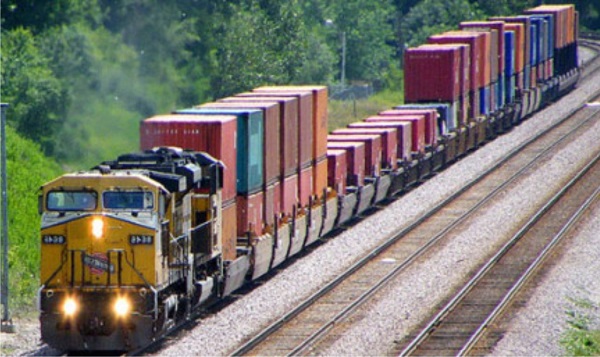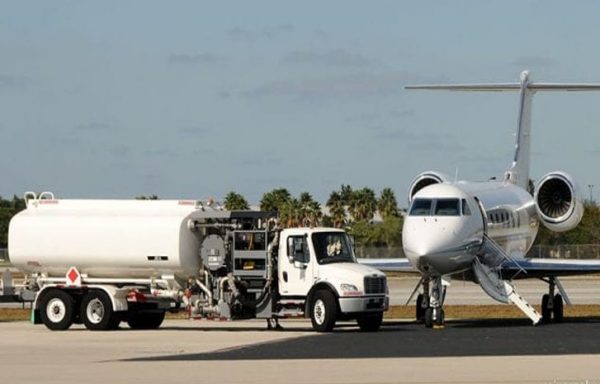Kaduna Airport: Drums Of Despair For Airlines Cloudy sky
 The blue skies of Kaduna Airport should be clear for airlines, but they are not. Fuel bills may be a fraction of their problem, but there are some nasty headwinds appearing. Nigerian airlines have clandestinely announced a fall in ticket price that shot up to between N38,000 and N42,000 for economy class before Abuja airport was shut for repairs on March 9,2017.
The blue skies of Kaduna Airport should be clear for airlines, but they are not. Fuel bills may be a fraction of their problem, but there are some nasty headwinds appearing. Nigerian airlines have clandestinely announced a fall in ticket price that shot up to between N38,000 and N42,000 for economy class before Abuja airport was shut for repairs on March 9,2017.
Ticket now goes for as little as N20, 000 or little more because of the saturation and influx of virtually all the airlines, except FirstNation Airways to Kaduna. The revenue required for the carriers to break even on that route is simply not there following drop in fares, high competition by over seven airlines with limited infrastructure, making it a loss-making route for them, at least for the next one month.
Again, the revenue required for them to break even varies greatly depending on factors that influence cost such as sector length, airline cost base, aircraft type and factors that influence revenue such as business or leisure travellers, competition and revenue. The number of passengers onboard, the ticket fare paid by each passenger and any ancillary revenue contribute to the total flight revenue.
Exonerating the carriers
One cannot blame the problems on the carriers. Virtually all the carriers did not want to lose out on the traffic they had envisaged they would get from the diversion of traffic to Kaduna, but that is not to be.
Industry analysts say that the anticipated buoyant market may have tempted airlines into adding too many seats on the routes. It had already been trending down, as operators have been getting pessimistic about the money to be made from the route.
The traffic is slumping, a sharp contrast from their dream of making a kill on the route because of the proximity of Kaduna to Abuja. That scuttled their ambition as fares keep dropping, sending them down 15 per cent, stifling the revenue the carriers would have made.
Route saturation
However, oversupply has affected air carriers’ passenger business. Airlines are also expected to encounter increased risks on their profit margins for such flights, which had been lucrative in the past few years, as the market for cross-strait flights to tier-1 cities has become saturated.An airline operator said airline industry is thought to be reaching its saturation point because an increase in seat capacity does not seem to be supported by an increase in airport capacity and improvements in infrastructure, according to an industry group.
First Nation’s exit
Spokesman for First Nation Airways, Rasheed Yusuf explained why the carrier stopped its operations to Kaduna, saying given the fact, “we envisaged that passenger traffic will fall by above 45 per cent where the industry needs over 70 per cent to break-even for diversion to Kaduna, coupled with low yield. “We did commence initial service to Kaduna; however, the performance of the flights operated did not meet our metrics despite operating reduced schedule.”
Yusuff said given the fact that Abuja airport closure and repair are the responsibility of the Federal Government and granted that the situation was inherited, the Federal Government should urgently address the issue of financial compensation to airlines for losses incurred as a result of the closure with the same fortrightness being displayed with respect to the runway repair.
He stated that the airline took the decision to take off its schedule to accomplish crew training and other important capacity building exercise that will further raise service quality level and enhance safety.
Any rule that forces a commercial enterprise to act against its wishes or interest is dispiriting. Is the Kaduna airport really bad in terms of business for the carriers? It depends on the divide one finds himself.
Routes classification
Aviation authorities have classified airline routes in Nigeria into two broad categories – viable and unviable. The viable ones are those in Lagos, Abuja, Port-Harcourt and Kano, while there are so many unviable airports across the country, which are serviced by airlines at a very huge cost without tax holiday by government considering the fact that that action has made carriers to bleed.
One of the tenets of network scheduling of airlines is that they withdraw from loss-making routes and increase flights to profitable routes. Viewed from this prism, unviable routes as listed above are no doubt loss-making.
That is why airlines maintain a minimum buffer. An aviation consultant who preferred anonymity, said an airline will fly routes to make money and will do everything possible to ensure that they are profitable at some stage.
“Typically, this takes between three and six months. In other words, airlines will pull out of the routes that make losses.” The haggling over air routes had intensified as the airline industry consolidated, removed excess capacity and boosted profits. Cutting half-empty flights and closing down costly hubs have helped boost airline industry profits.
Risks
In today’s world, it is all about evaluating risk. Airlines, by the very nature of what they do, expose themselves to the greater level of risk than an airport. However, they are also able to be flexible and adjust their route network by adding or cancelling routes at short notice.
For any airline, operating into airport requires engaging with airline decision-makers and providing credible analysis to prove that there is a profitable opportunity to launch that route.
The evolution of route development has seen low cost airlines of which Nigerian carriers fall into adopt a fast ‘churn’ approach axing routes if they don’t achieve the expected results within a very short space of time.
courtesy: New Telegraph







